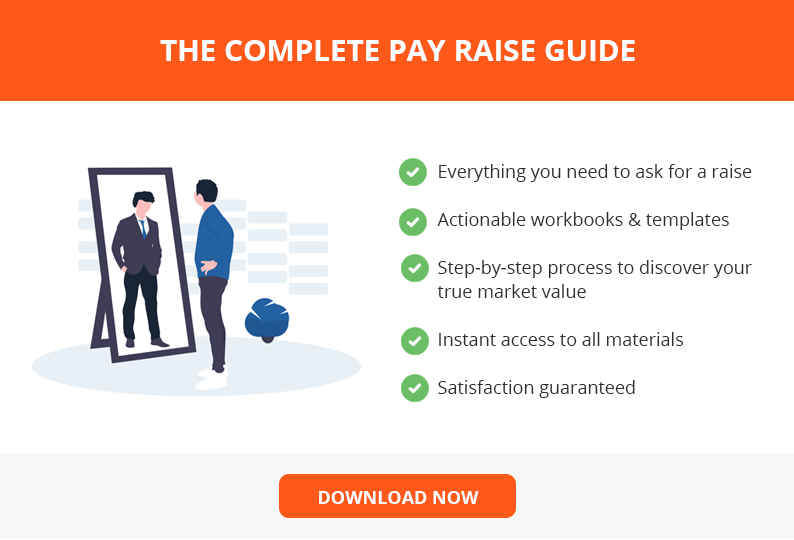You may be wondering, “how to ask for a raise after graduation?”
To be certified in an area, you must first pass a test (or series of tests) proving you have a clear understanding of the field. An example of a certification test you may have heard of is the ‘Serving It Right’ program. Serving It Right is a mandatory program that an employee must pass before being allowed to serve alcohol in the job place.
How to ask for a raise after graduation?
- Know your company’s policy on raises with graduations or certifications
- Schedule a private meeting
- Come prepared with proof
- Be realistic in your ask
- Be open to feedback from your manager
There are all kinds of courses to gain certification in a specific skill set. Whether, or not you should automatically qualify for a raise upon completing one of these programs is a loaded question!
Sometimes, certification is mandatory or expected as part of your employment contract. While other times an employer may offer voluntary ordination to employees interested in obtaining an official declaration of their knowledge.

Ways to ask for a raise
Asking for a pay raise is an unnerving task anytime you think of it. Whether you’re a long-term employee, have recently reached a milestone, or become certified in an area of expertise, it’s always tough to ask for more money!
But why is it that you have such a hard time with approaching your boss anyways? After all, you feel you’re a dedicated and productive employee who deserves recognition for their hard work. It seems only natural that written validation to your skillfulness should warrant a pay hike!
Schedule a private meeting
There are a time and place for everything, and the middle of the coffee room isn’t environment you should be approaching your employer to ask for a raise! Instead, request a private sit down with your boss. Being able to speak uninterrupted will always be beneficial and doing this makes you seem more professional.
When you ask to schedule a sit-down, don’t say it’s to ‘ask for a raise!’ Mention instead, that you would like to have a conversation about your performance. An open discussion is more inviting and less demanding; it gives your boss a chance to prepare and to share any constructive criticism they might have.
Come prepared
Don’t just walk into the boss’s office with your transcript, certification certificate or proof from your program in hand expecting a raise! A multi-faceted approach is always more powerful. Instead, take the time to compile a list of your strengths and contributions. Highlighting your worth as an employee only makes your case stronger and proves you’re a productive worker worth paying a higher salary to employ.
Be realistic
When it comes to asking for a raise, you want to be realistic with your request. Research current market trends to get a better understanding of the current value for your perspective field.
Keep in mind that the average pay increase is approximately 4.6%. While this might seem like a small number, this is the realistic expectation to keep mind when you ask for a raise.
The average pay increase is approximately 4.6% Share on XDon’t walk into your boss’s office expecting a 10% hike in pay because they’re likely to laugh in your face. Raise Guide has an article on how much of a raise to ask for and what to do if you ask for a raise and don’t get it.
Be open to feedback
Sometimes your boss won’t react in the way you had hoped! Instead, they may have a list of grievances you weren’t even aware. In this case, be inviting to their constructive criticism and try to set out a plan to improve your performance over a set period.
Scheduling a review after this time gives you another chance to prove yourself and show that you’ve corrected yourself to meet the bosses expectations. At this time, if you have met their demands, you should expect to be granted your pay raise.
Find out company policy around certifications
Every company has its policies regarding certifications and salary increases. It’s good to look at these guidelines before approaching your boss to ask for a raise. Remember that booklet of procedures you got on your first day of training? You know, the one you skimmed through before tossing it away in a drawer somewhere?! Tuns out there might be something useful in there after all!
Certain employers have straight forward rules around raises when an employee earns a certification. While others flat out refuse to offer more money when someone receives their certificate.
Ways to increase your chance of getting a raise
Demonstrate strong work ethics
Work ethics are the way that you behave in regards to your job. Some people choose to arrive five minutes late in the morning or take an extra 10 minutes every lunch hour. These people lack a strong work ethic, which is something an employer takes notice.
Employees who arrive early and leave only once their shift ends earn a special place in the hearts of their boss. These employees are the ones more likely to get the raise they request. Most won’t even have to ask!
Be sure to show up to work early and always have a positive attitude while on your shift. Employers enjoy when a worker is outgoing no matter what the day presents!
Try being extra proactive when it comes to note-taking and task completion. Your boss doesn’t want to repeat themselves all day long! Which is why you should always pay attention to directions and complete tasks correctly the first time around.
The best way to never miss any detail is by taking notes during meetings when your boss gives instructions. Completing tasks exactly as requested shows that you possess a strong work ethic and that you’re a valued employee to the company.
When it comes time to ask for a raise after graduation, these are the kinds of qualities that you mention during your review process. It’s difficult for your boss to argue with such valid points, especially if you follow through on your convictions!
Be a team player
Being a productive member of your team of colleagues is an essential and invaluable characteristic. Prove that you’re genuinely a team player by assisting in any way possible.
You don’t need to on too much work, but merely helping out with little gestures around the office. Whether it’s watering plants, tidying common areas, or even helping to clean up after your morning meeting. Little things like this show an employer that you’re genuinely passionate about your career and aren’t just showing up for the paycheck.
Always be respectful
Speaking to your boss in a professional tone will carry you great distances. Speaking in a demanding voice makes you appear conceded while discussing your salary.
Speak confidently and clearly, but never appear cocky. Being overly assertive will make your employer less likely to grant your wishes.
Always give your boss time to address anything they want to fully. Once they’ve had their chance to speak, uninterrupted repeat back the most critical highlights, they mentioned. Doing this validates their thoughts and conveys that you are paying attention while they talk.
Being respectful towards your employer is always the best way to earn their appreciation and support. Never act like a know-it-all or authoritarian; it will only make them push back against you in a negative direction.
How to ensure future raises without having to ask
The best way to ensure that you get regular pay increases is by scheduling performance reviews in advance. Depending on your company policy this could be every 3, 6, or 12 months.
It’s best to schedule your next review at the end of your current evaluation. Scheduling now ensures that you won’t be overlooked when it comes time to evaluate wages.
By writing down any expectations, it gives you a point of reference when it comes time for your next review. If you successfully met anything requested in the previous discussion, you are likely to get an increase. It’s difficult for an employer to argue when everything was recorded on paper.

Is it worth getting certified?
Earning certification in any area of expertise is always a smart thing to do! If your job doesn’t offer a raise to its certified employees, prospects view a certified employee as being more valuable than one who’s not.
Further learning about a relevant field proves that you are committed to your career and want to be the most productive employee possible. Employers appreciate having a dedicated person willing to work outside of the office to better their skills and knowledge.
Most certification tests take one to two days, not counting study time. Specific training takes several months to complete. Employers requesting certification will likely pay the cost for this training. However, if your employer did not require you to complete the test, you will have to pay a fee out of pocket. Prices range anywhere from fifty to several hundred dollars.
Approaching your boss to ask for a raise after graduation doesn’t need to be a scary thing to do. Being fully prepared at the time of your review is the best way to ensure success! Highlight key areas of your performance and be sure to bring proof of any new certification. Once you pass the test, you receive documents verifying your completion. Present this to your employer and let them add a copy to your file, though never give them the original text.








